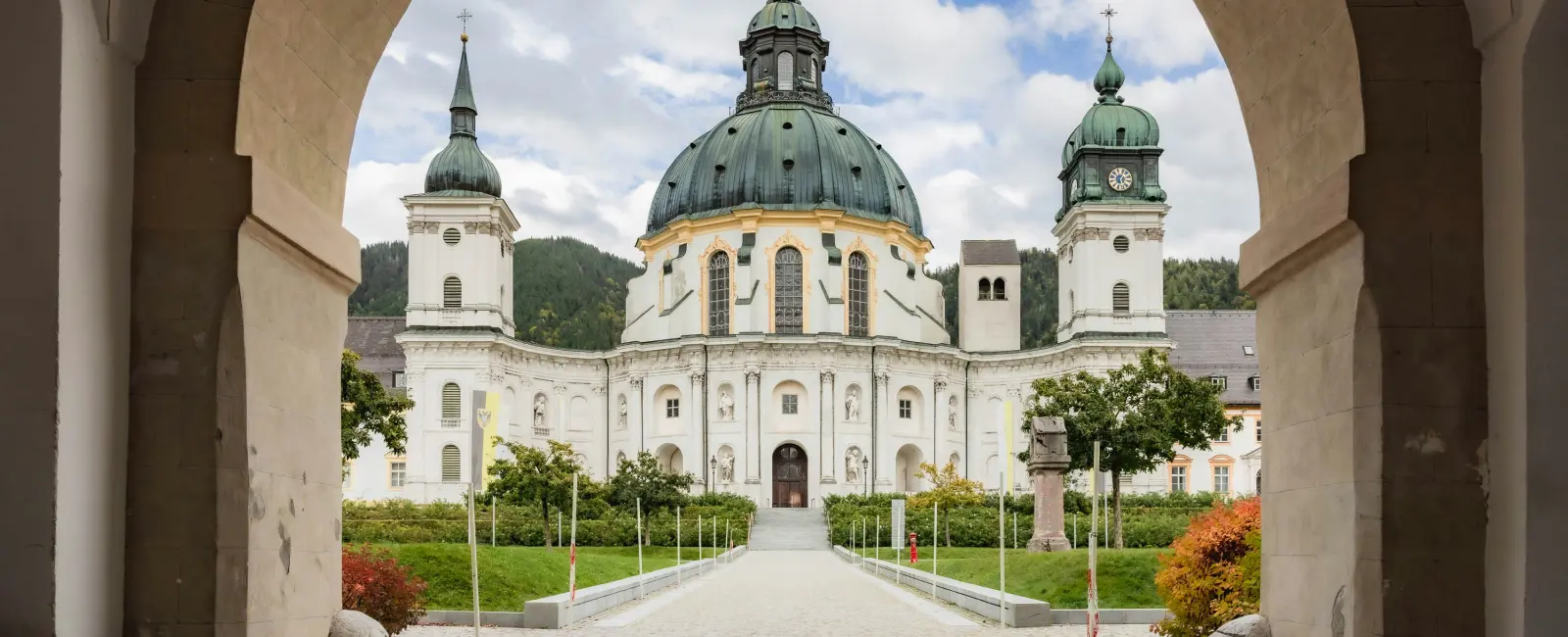Bavaria is not just known for its stunning landscapes and vibrant cities. It’s a region rich in spiritual heritage, with monasteries that have stood the test of time. These monastic sites are more than just religious landmarks; they are centers of tradition, craftsmanship, and cultural significance. In this post, we’ll delve into the fascinating world of monastery life in Bavaria, exploring their spiritual roots, artisanal practices, and the modern role they play in Bavarian culture.
The Roots of Monastery Life in Bavaria
Monastic life in Bavaria dates back to the early Middle Ages. Benedictine monks established many of the first monasteries, which became key centers for education, agriculture, and spirituality. The role of these monasteries extended far beyond their walls, impacting the surrounding communities and shaping Bavarian culture.
Monasteries like St. Boniface in Munich or Weltenburg Abbey were crucial in preserving knowledge during tumultuous times. Monks played a vital role in copying manuscripts, educating locals, and developing agricultural methods. These monasteries were often self-sustaining, producing their food and goods, a tradition that continues to this day. Monastery life in Bavaria evolved as a beacon of stability and spiritual growth during the chaos of medieval Europe.
Additionally, many of these monastic communities helped protect sacred relics and artifacts from destruction during periods of war and instability. Monks became skilled in various trades, such as masonry, carpentry, and brewing, all of which contributed to the monastery’s financial independence. Their influence extended into politics, as some monasteries held significant sway over local rulers and decision-making processes. The monasteries also became places of pilgrimage, attracting travelers seeking healing, spiritual guidance, and blessings. These sacred sites often spurred the development of nearby villages, which grew to support the influx of pilgrims and religious visitors.
Over the centuries, the architectural grandeur of Bavarian monasteries flourished, with intricate churches, libraries, and cloisters being built to reflect the region’s deep religious devotion. As centers of learning, many monasteries housed large libraries containing ancient texts that would have otherwise been lost to time. In some cases, monasteries operated schools, teaching not only religious doctrine but also the sciences, arts, and classical literature. This preservation of culture and education helped Bavaria maintain its intellectual and spiritual richness through difficult historical periods, such as the Black Plague and religious upheaval.
Monastic Traditions That Endure
While the spiritual practices of Bavarian monasteries remain central, their connection to craftsmanship is equally significant. Many monasteries are known for their beer, cheese, and other artisanal products. The monks view their work not just as a means of sustenance but as an extension of their spiritual devotion. Every task, whether brewing beer or cultivating herbs, is carried out with precision and purpose.
The same care goes into the making of liqueurs and wines, with each recipe being passed down through generations of monastic tradition. For example, monasteries like Ettal Abbey are known for their exquisite herbal liqueurs, crafted using a blend of locally grown plants and secret recipes. This attention to detail and preservation of traditional methods is a hallmark of monastery life in Bavaria.
In addition to these food and beverage products, many monasteries also produce handcrafted items such as candles, soaps, and religious artifacts. Each item is made with the same sense of devotion that characterizes all monastic work. Visitors to these monasteries can purchase these artisanal goods, supporting the continuation of these ancient practices while taking home a piece of Bavarian monastic culture.
The monks’ dedication to craftsmanship reflects their broader philosophy: that every action, no matter how small, can be an offering to God. This blend of spirituality and skill elevates their work, making monastic products not only exceptional in quality but also rich in meaning. Through this labor, monastery life in Bavaria continues to thrive, sustaining both the monks and the communities around them.
Spiritual Practices and Daily Life
The rhythm of daily life in Bavarian monasteries revolves around prayer, work, and community. Monks follow a schedule known as the “Rule of St. Benedict,” which emphasizes balance. They dedicate time to both spiritual practices and manual labor. A typical day begins with morning prayers, followed by periods of work, study, and more communal prayers.
Visitors to monasteries like Ettal Abbey can witness this lifestyle firsthand. The abbey is home to a community of Benedictine monks who maintain a rigorous schedule of devotion and craftsmanship. Their daily routine includes the cultivation of herbs for medicinal purposes, the crafting of liqueurs, and, of course, prayer.
Monastery life also emphasizes hospitality. Many monasteries in Bavaria open their doors to travelers and pilgrims seeking spiritual retreat. These monasteries offer simple accommodation and the chance to participate in the monks’ spiritual practices. Guests can enjoy moments of silence, reflection, and even engage in manual tasks alongside the monks. This connection between the spiritual and the practical is at the heart of monastery life in Bavaria.
The Role of Monastic Beer in Bavarian Culture
Bavaria is famous for its beer, and many people are surprised to learn that some of its finest brews come from monasteries. Monastic brewing in Bavaria is an ancient tradition, dating back to the Middle Ages. The monks brewed beer not only for their consumption but also as a means to support the monastery financially. This tradition remains strong today, with several monasteries continuing to brew some of Bavaria’s most iconic beers.
Kloster Andechs, for example, is one of the few remaining monastic breweries in Bavaria. The monks here have been perfecting their brewing methods for centuries. Their beers, including the well-known Andechser Doppelbock, are beloved across Germany and internationally. The process of brewing at Andechs is an example of how monastery life in Bavaria incorporates craftsmanship and spirituality, as the monks view their brewing as an extension of their religious devotion.
Other monasteries, such as Weltenburg Abbey, also have a long brewing tradition. Located along the Danube River, Weltenburg Abbey is home to the oldest monastery brewery in the world, dating back to 1050. The abbey’s beers, particularly the dark, rich Weltenburger Kloster Barock Dunkel, have won numerous awards, solidifying their place in Bavarian beer culture.
Monastic Cheese and Culinary Traditions
In addition to beer, monasteries in Bavaria are renowned for their cheeses and other artisanal foods. These products are crafted with the same care and attention to detail that define the monks’ approach to all their work. Monasteries like Ettal Abbey produce cheese using traditional methods passed down through generations. The cheese is made from milk sourced from the abbey’s own dairy cows, ensuring its quality and authenticity.
Monks also cultivate herbs and medicinal plants in monastery gardens, which they use to create herbal remedies and liqueurs. At Kloster Benediktbeuern, the monks have been using their herbal knowledge to craft remedies for centuries. Visitors to the abbey can purchase these products, including herbal teas, tinctures, and essential oils, all produced using recipes rooted in monastic tradition.
Monastery food products in Bavaria offer a unique glimpse into the self-sustaining nature of monastery life in Bavaria. Whether it’s beer, cheese, or herbal remedies, these items are not only products for sale but expressions of the monks’ devotion to their craft and their spiritual beliefs.
The Architecture of Bavarian Monasteries
Bavarian monasteries are not just centers of spiritual and artisanal activity. They are also architectural marvels. Many of these monasteries, such as Ettal Abbey and Metten Abbey, feature stunning Baroque and Rococo designs, with intricate frescoes, altars, and ornate chapels. These structures are testaments to the deep religious and cultural importance of monastery life in Bavaria.
The design of Bavarian monasteries reflects their role as places of worship and community. Spacious courtyards, beautifully maintained gardens, and serene cloisters offer spaces for contemplation and prayer. Visitors to monasteries like Schäftlarn Abbey, located near Munich, can walk through these tranquil settings and experience the peaceful atmosphere that has inspired monks for centuries.
The architecture of these monasteries often includes extensive libraries, where monks preserved and studied manuscripts. For example, the library at St. Emmeram Abbey in Regensburg contains a vast collection of medieval texts, offering a window into the intellectual side of monastery life in Bavaria. These libraries are still in use today, continuing the monastic tradition of learning and knowledge preservation.
Monastery Retreats: A Spiritual Escape
Many Bavarian monasteries offer retreat programs for those seeking a spiritual escape from the busy modern world. These retreats allow guests to experience monastery life in Bavaria up close, joining the monks in prayer, reflection, and simple tasks. Retreat participants are encouraged to embrace the rhythm of monastic life, finding peace in the silence and structure of the day.
At Kloster Reutberg, guests can stay in simple accommodations and spend their days in quiet contemplation or assisting the monks with daily chores. Monastic retreats often emphasize solitude, providing visitors with the opportunity to disconnect from technology and distractions. For those seeking spiritual renewal, these retreats offer a unique chance to reflect on life’s deeper meanings.
Monastic retreats in Bavaria are not limited to religious seekers. Many visitors come simply to enjoy the tranquility and beauty of the surroundings. The peaceful landscapes, coupled with the ancient tradition of monastic hospitality, make these retreats appealing to a wide range of people.
The Future of Monastery Life in Bavaria
Monastery life in Bavaria continues to evolve in the modern world. While many monasteries still follow centuries-old traditions, they have also adapted to contemporary society. Some have embraced technology, offering online retreats and selling their artisanal products through digital platforms. Others have become cultural centers, hosting concerts, exhibitions, and workshops that draw visitors from across the globe.
At the same time, Bavarian monasteries remain true to their core values of spirituality, community, and craftsmanship. The monks continue to dedicate their lives to prayer and service, while also engaging with the wider world. This balance between tradition and modernity is what keeps monastery life in Bavaria relevant and vibrant today.
Visiting Monasteries in Bavaria: Practical Tips
If you’re planning to explore monastery life in Bavaria, there are several ways to experience this unique cultural heritage. Many monasteries welcome visitors for tours, allowing you to explore their beautiful chapels, libraries, and gardens. Some monasteries, such as Weltenburg Abbey and Kloster Andechs, offer guided brewery tours, where you can learn about the monastic brewing process and taste their renowned beers.
When visiting a monastery, it’s important to respect the quiet and contemplative nature of these sacred spaces. While most monasteries are open to tourists, they remain active religious sites, and visitors should dress modestly and behave respectfully.
Monasteries that offer accommodation typically require advance reservations. Retreats are often booked months in advance, especially during holiday seasons. Be prepared for simple, humble surroundings, as these retreats focus on spiritual renewal rather than luxury.
Conclusion
Monasteries in Bavaria not only preserve ancient traditions but also serve as vital cultural hubs, showcasing the region’s rich heritage. They invite visitors to step back in time, offering insights into a simpler, more reflective way of living. Each monastery has its unique character, whether through its architectural beauty, its artisanal products, or the peaceful atmosphere it provides. For those looking to disconnect from the fast-paced world, monastery life in Bavaria offers a rare opportunity to experience true serenity. A visit to these sacred spaces fosters a deeper connection with both Bavarian culture and one’s inner self.



